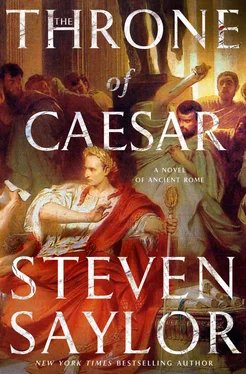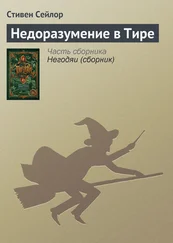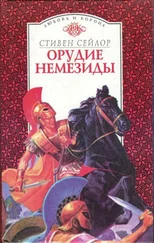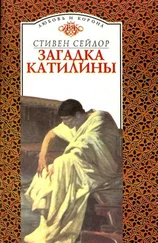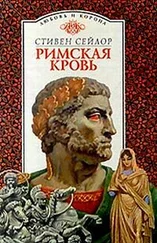Стивен Сейлор - The Throne of Caesar
Здесь есть возможность читать онлайн «Стивен Сейлор - The Throne of Caesar» весь текст электронной книги совершенно бесплатно (целиком полную версию без сокращений). В некоторых случаях можно слушать аудио, скачать через торрент в формате fb2 и присутствует краткое содержание. Год выпуска: 2018, Издательство: St. Martin's Press, Жанр: Исторический детектив, на английском языке. Описание произведения, (предисловие) а так же отзывы посетителей доступны на портале библиотеки ЛибКат.
- Название:The Throne of Caesar
- Автор:
- Издательство:St. Martin's Press
- Жанр:
- Год:2018
- ISBN:нет данных
- Рейтинг книги:5 / 5. Голосов: 1
-
Избранное:Добавить в избранное
- Отзывы:
-
Ваша оценка:
- 100
- 1
- 2
- 3
- 4
- 5
The Throne of Caesar: краткое содержание, описание и аннотация
Предлагаем к чтению аннотацию, описание, краткое содержание или предисловие (зависит от того, что написал сам автор книги «The Throne of Caesar»). Если вы не нашли необходимую информацию о книге — напишите в комментариях, мы постараемся отыскать её.
The Throne of Caesar — читать онлайн бесплатно полную книгу (весь текст) целиком
Ниже представлен текст книги, разбитый по страницам. Система сохранения места последней прочитанной страницы, позволяет с удобством читать онлайн бесплатно книгу «The Throne of Caesar», без необходимости каждый раз заново искать на чём Вы остановились. Поставьте закладку, и сможете в любой момент перейти на страницу, на которой закончили чтение.
Интервал:
Закладка:
But I could stall only so long. With a new contract came a promise to my editor to deal at last with the elephant in the room: What was Gordianus up to in the last fateful days of Caesar’s dictatorship?
At that cocktail party in Waco, it was James J. O’Hara, George L. Paddison Professor of Latin at the University of North Carolina, Chapel Hill, who solved my dilemma: Make it about Cinna, he said. Shakespeare simultaneously killed Cinna and made him immortal with a single scene in Julius Caesar —but surely there was more to the story, some hidden secrets to be revealed about a murder as famous and infamous as that.…
In that instant, I was off and running. Thank you, Jim O’Hara.
What can one know about Cinna? More than I expected and less than I might wish. More, because it turns out that Cinna in his own lifetime was a very important poet. Less, because his poems, except for a few threadbare fragments, are lost.
All the scattered bits of Cinna have been gathered and assessed by Edward Courtney in Fragmentary Latin Poets (Oxford, 1993) and by A. S. Hollis in Fragments of Roman Poetry (Oxford, 2007), who suggests that “after the disappearance of Lucretius, Catullus, and Calvus … Cinna could have enjoyed almost a decade as the leading Roman poet.” For a penetrating look at Cinna and his place in Latin literature, see T. P. Wiseman, Cinna the Poet and Other Roman Essays (Leicester University Press, 1974).
So much for Cinna’s tangible corpus. What of his poltergeist? R.O.A.M Lyne ( Ciris: A Poem Attributed to Virgil , Cambridge, 1978), Richard F. Thomas (“Cinna, Calvus, and the Ciris, ” The Classical Quarterly 31:2, 1981), and Peter E. Knox (“Cinna, the Ciris, and Ovid,” Classical Philology 78:4, 1983) all surmise that substantial portions of Cinna’s Zmyrna may have been cribbed by the author of the Ciris, a later poem about a different father and daughter. The Ciris survives, while the Zmyrna does not, but when we read certain lines of the Ciris, we may yet hear a distant, ghostly echo of Cinna himself.
Cinna’s mentor (and slave) Parthenius was another major poet of whom little survives, but he did write the book, literally, on modern poetry circa 44 BC , and we still have it: Erotica Pathemata (Of the Sorrows of Love), a bare-boned collection of stories intended as “a storehouse from which to draw material.” The morbid, sexually convoluted subject matter is eyebrow raising, to say the least.
Born a year after Caesar’s death, Ovid tells the fullest and most familiar surviving version of the Zmyrna story, in the Metamorphoses. As J. D. Morgan notes in “The Death of Cinna the Poet” ( The Classical Quarterly 40:2, 1990), “Ovid must have been familiar with the famous poem of his renowned predecessor,” but how his version followed or differed from Cinna’s we do not know. Variant scraps of the myth are found in Ovid’s Ars Amatoria (1.285–8); Oppian, Halieutica (3.402); Hyginus, Fabulae (58, 242, 248, 251, 270, 271, 275); Nonnus, Dionysiaca (13); Tacitus, Histories (2.2–3); and Antoninus Liberalis, Metamorphoses (34).
What drove the killers of the poet to such frenzy? Blame it on the Liberalia, say Francesco Carotta and Arne Eickenberg, authors of “ Liberalia Tu Accusas! Restituting the Ancient Date of Caesar’s Funus ” ( Revue des Études Anciennes 113, 2011; online at academia.edu ). While untangling the evidence for the date of Caesar’s funeral, Carotta and Eickenberg, as Keats might say, “Look’d at each other with a wild surmise”—in particular on page 12, where they make a striking connection between the funeral effigy of Caesar, mechanically rotated for everyone to see, and the ritual image of Dionysus transported on a wagon and mechanically rotated. In another Dionysian leap of logic, they argue that no date but the Liberalia will do for Caesar’s funeral, for on what other day could the Roman mob have descended into the “Bacchanalian omophagic ritual” that did away with Cinna? About their conclusion I am skeptical, but their linkage of Cinna’s death to the dismemberment of Pentheus (and Dionysus himself) spurred my imagination.
If the reader of these pages has not had enough of beheadings, look to “Maxentius’ Head and the Rituals of Civil War” by Troels Myrup Kristensen ( Civil War in Ancient Greece and Rome: Contexts of Disintegration and Reintegration, Franz Steiner Verlag, 2015; online at academia.edu ), where we learn that “a mutilated body could indeed have dire consequences for one’s afterlife.”
For readers seeking a sound historical account of the assassination, I highly recommend The Death of Caesar by Barry Strauss (Simon & Schuster, 2015). My battered copy of this book has dog-ears, highlighting, and scribbled notes on virtually every page.
Antony’s funeral speech in this book descends not from Shakespeare (who freely invented) but from Cassius Dio ( Roman History 44.35–49). One line of Shakespeare does make its way into this novel: “Tear him for his bad verses” ( Julius Caesar, Act III, Scene III), a line original to Shakespeare that does not appear in any ancient source. Its literal meaning here pays wry homage to the Bard.
Another homage to another poet runs through these pages, in which, like Cinna in the Ciris, he makes ghostly appearance. Some of his other (alleged) similarities to Cinna are explored here, between the lines. The first reader to send me this author’s name (email throne@stevensaylor.com) will be given a mention in some future edition of this book.
Finally, my thanks to my longtime editor, Keith Kahla, and longtime agent, Alan Nevins, who conspired to make me confront the Ides.
ALSO BY STEVEN SAYLOR
Roma: The Novel of Ancient Rome
Empire: The Novel of Imperial Rome
A Twist at the End: A Novel of O. Henry
Have You Seen Dawn?
ROMA SUB ROSA ® IN CHRONOLOGICAL ORDER
The Seven Wonders
Raiders of the Nile
Wrath of the Furies
Roman Blood
The House of the Vestals
A Gladiator Dies Only Once
Arms of Nemesis
Catilina’s Riddle
The Venus Throw
A Murder on the Appian Way
Rubicon
Last Seen in Massilia
A Mist of Prophecies
The Judgment of Caesar
The Triumph of Caesar
ABOUT THE AUTHOR

STEVEN SAYLOR is the author of the acclaimed Roma Sub Rosa series of historical mystery novels featuring Gordianus the Finder, beginning with Roman Blood, as well as the internationally bestselling historical novels Empire and Roma . He has appeared on the History Channel as an expert on Roman politics and life. He divides his time between Berkeley, California, and Austin, Texas.
Visit the author’s website at www.stevensaylor.com or on Facebook at: www.facebook.com/StevenSaylorAuthor , or sign up for email updates here .

Thank you for buying this
St. Martin’s Press ebook.
To receive special offers, bonus content,
and info on new releases and other great reads,
sign up for our newsletters.

Интервал:
Закладка:
Похожие книги на «The Throne of Caesar»
Представляем Вашему вниманию похожие книги на «The Throne of Caesar» списком для выбора. Мы отобрали схожую по названию и смыслу литературу в надежде предоставить читателям больше вариантов отыскать новые, интересные, ещё непрочитанные произведения.
Обсуждение, отзывы о книге «The Throne of Caesar» и просто собственные мнения читателей. Оставьте ваши комментарии, напишите, что Вы думаете о произведении, его смысле или главных героях. Укажите что конкретно понравилось, а что нет, и почему Вы так считаете.
